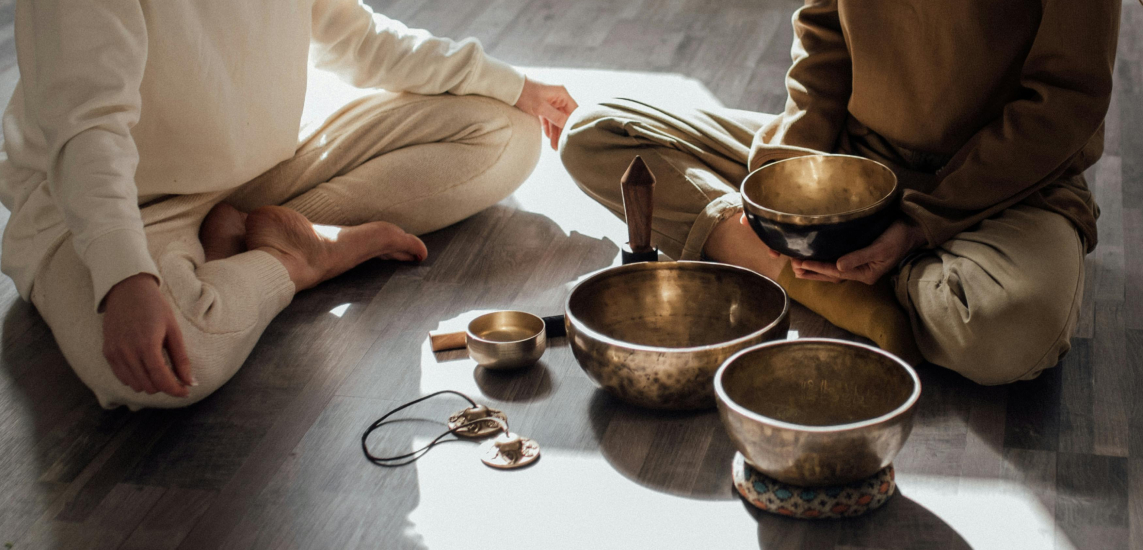Whether you’re single or in a relationship, you’ve probably noticed that Valentine’s Day can bring out the best and worst in people. This is because, from a young age, we’re socially conditioned to have high expectations and materialistic values on a day that’s meant to celebrate freedom and love. Instead of being grateful, people focus on things they don’t have which inevitably leads to angst, blame, and disappointment. Taking a mindful approach will help you to avoid the pitfalls of needless pressure, drama, and stress on Valentine’s Day.
About The Scarcity Mindset
Most people have automatic thinking patterns that they developed in response to the world around them. One of the most common unhelpful thinking patterns is the scarcity mindset.
A scarcity mindset is usually triggered by comparative thinking and judgment. When you compare yourself to other people, you inevitably judge or idealize them and also judge or doubt your progress in life. For example, single people might think that they should be in a relationship because being alone doesn’t seem acceptable when everyone else seems to be happily in love. Partnered people may feel like their relationship isn’t as impressive as it “should” be when they compare themselves to couples on social media who seem to have a fairytale lifestyle. Commercials and movies program us to believe that only certain types of gifts and gestures validate the significance of our relationships and sense of worth. This mentality can trigger insecurity and reinforce low self-worth.
Engaging in a scarcity mindset can compress your perspective by making you focus on what is lacking in your life. This can lead to a state of chronic dissatisfaction, where you feel as though nothing is enough, even when you get the thing you thought you wanted. This thinking pattern is disempowering because you are placing your power and sense of happiness outside of yourself and dependent on someone or something that is always out of reach. Over time, this can lead to chronic feelings of hopelessness, emptiness, and even depression.
Trying To Fill The Void
From a Buddhist psychology perspective, our unwillingness to be in the present moment and accept the impermanence and uncertainties of life creates an internal struggle and sense of emotional and spiritual emptiness. From a somatic psychology perspective, this feeling of scarcity or emptiness can manifest as a bottomlessness or void in the pit of the stomach or pelvic area, or a feeling of constriction in the throat and chest.
This emptiness can activate fear and anxiety connected to our sense of safety and survival, along with a desperation for control. It can also trigger cravings for shopping sprees, entire bottles of wine, and all of the cake and ice cream in the world. While indulging in these impulses might soothe the anxiety at the moment, the void ultimately can’t be fulfilled by another person or anything outside of you. This longing will persist until you accept what you can and can’t control and take command of your thoughts and perspective in life. Being aware of your thoughts and automatic responses is the first step towards mindfulness.
A Mindful Approach To Valentine’s Day: 4 Empowering Experiments
1. Focus On Gratitude
Instead of focusing on lack or what’s missing, guide your awareness towards the abundance of what you already have in your life, even the basics like food, water, shelter, and air to breathe.
Engaging in grateful thoughts, feelings, and actions can increase your sense of happiness, meaningfulness, and connectedness in life. Gratitude also makes you less susceptible to the trap of scarcity thinking and negative self-talk by regulating your nervous system and putting you in a more relaxed, positive, and resourceful state of mind.
Read more: Many people are familiar with writing gratitude journals. Discover how to start living a life of gratitude besides writing down lists.
2. Redefine The Way You Measure Your Worth
While self-esteem and confidence are related to external factors such as achievements, self-worth is based on who you are as a person.
It’s possible to have high self-esteem and low self-worth. Low self-worth can make you to feel ashamed or bad about yourself, and unworthy of loving yourself. This might lead you to compensate by attempting to get your sense of worth by solely focusing on achievements, physical appearances, money, social status, power, obtaining material possessions, perfectionism, relationship status, or being liked. As you can imagine, this sense of worth will be unstable and fleeting. In this case, it’s important to re-evaluate how you are measuring your worth.
To cultivate a healthy and stable sense of worth, bring mindful awareness to the idea that your worth isn’t based on your appearance, possessions, or relationship status. Your value as a person is inherent, and everyone is equally worthy and deserving of love. Focus on who you are as a person, the values you stand for, and why.
This awareness will help you to develop self-love, compassion, and acceptance, which in turn, will empower your self-worth. Learning to love and accept yourself will expand your capacity to love others from a space of equanimity, and non-judgment.
Read more: Learn about the different types of negative self-talk and how to overcome their triggers.
3. Emante Love With No Strings Attached
The heart has the largest electromagnetic field in the body and is approximately 60 times greater in amplitude in comparison to the brain. We communicate non-verbally through the electromagnetic field of the heart. Breathing, meditation, and gratitude practices can help you to foster compassion and self-love while also changing your heart rhythm and the way you communicate with the world.
Focus on breathing into the heart region and emanating love and compassion from your heart when you exhale. Imagine that you expanding love with each breath you take to eventually fill your body, the room you are in, the entire street, and beyond. Reflect on the experience of generating love from within and emanating love with no strings attached.
4. Cultivate Healing Through Mindful Bodily Awareness
Low self-worth and scarcity mindset are often rooted in unresolved emotional pain from past relationships, shame, childhood wounds, and trauma. Unresolved trauma often lives in the body and is activated when we feel triggered.
If you notice that you’re feeling triggered or having a stress or trauma response, guide your awareness to the breath. Set a timer and focus on breathing slowly into the belly for 5-10 minutes. This breathing practice will interrupt the stress response in your brain and will help you to feel more grounded and resourced.
Read more: Learn how to engage the body’s relaxation response when feeling stressed or anxious.
Pay attention to your body’s signals and needs throughout the day. Commit to doing things that help you to feel embodied, stable, and safe. Over time, this practice of mindful grounding and breathing will help you to cultivate healing and a feeling of wholeness.
Practice Self-Love This Valentine’s Day
In summary, love yourself. Take care of your body, mind, and spirit so you’re resilient in the face of social pressure. Reclaim Valentine’s Day and remember, you’re not a stereotype, and neither is love.
Read more: Explore how to practice self-love with small acts that will transform your day.



-1.jpg)



